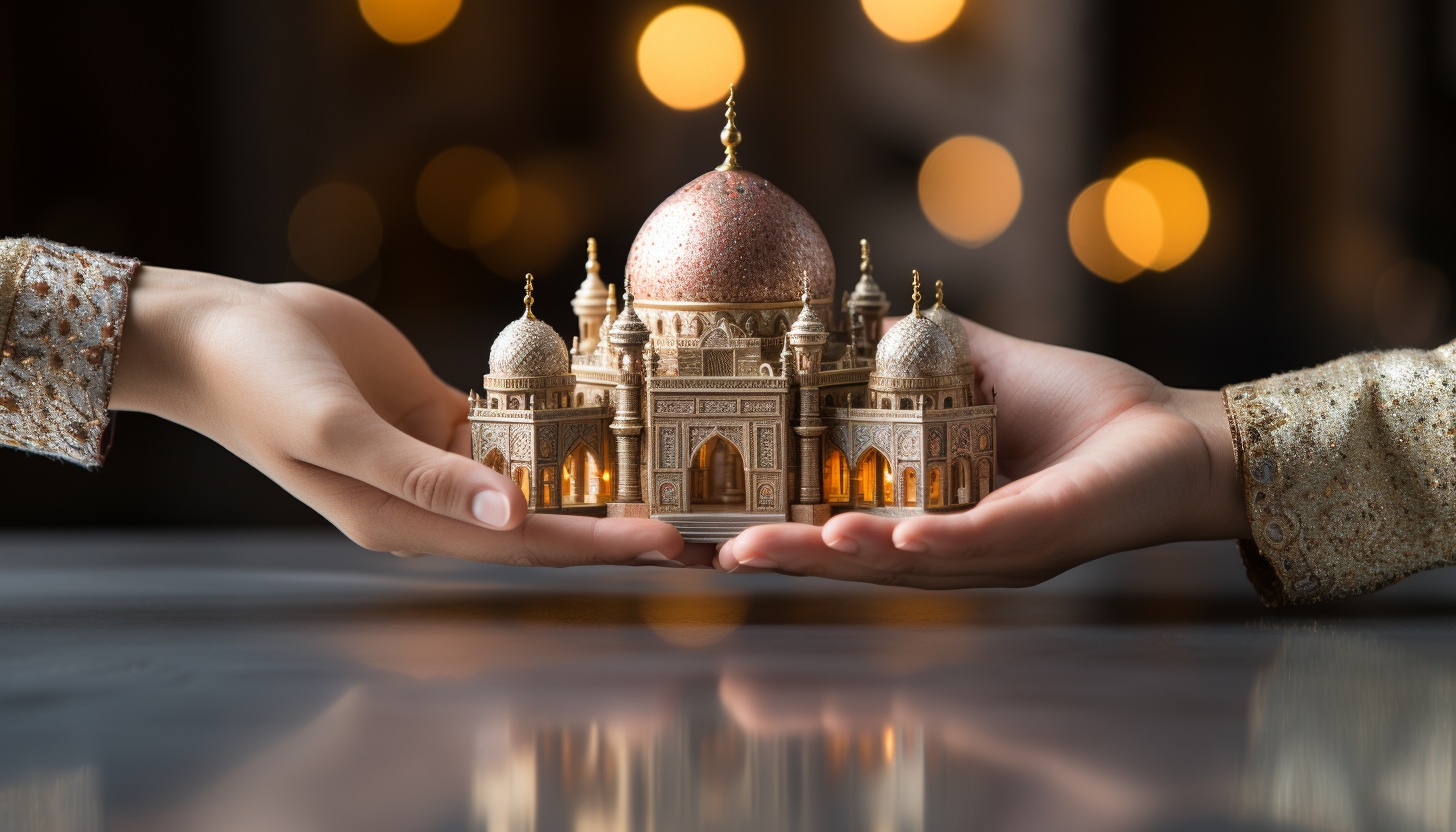
Love and Religion: How Faith Impacts Dating and Relationship Choices
Like a delicate dance, navigating the intricacies of love and religion requires careful steps.
In the realm of dating and relationships, faith can have a profound impact on the choices we make. From the importance of shared beliefs to the challenges of differing religious practices, the interplay between love and religion is a fascinating subject to explore.
This article delves into the ways in which faith influences our romantic lives, shedding light on the complexities and offering insights for those navigating this intricate terrain.

When considering a potential partner, it’s crucial that you prioritize shared beliefs, as they serve as a foundation for a successful and fulfilling relationship. Shared beliefs refer to the values, principles, and convictions that you and your partner hold dear. These shared beliefs act as a guiding force in your relationship, providing a sense of unity, understanding, and common ground.
Having shared beliefs allows you to navigate important aspects of life together, such as raising children, making financial decisions, or celebrating religious holidays. It provides a sense of cohesion and harmony, reducing the likelihood of conflicts arising from fundamental disagreements.
Furthermore, shared beliefs promote a deeper connection between partners. When you share similar values and beliefs, you’re more likely to understand each other’s perspectives, support one another, and find solace in times of hardship. This emotional and spiritual connection can strengthen the bond between you and your partner, fostering a deeper level of intimacy and trust.
However, it’s important to note that shared beliefs don’t mean absolute uniformity. Differences can exist within shared belief systems, and healthy relationships allow room for individuality and growth. It’s through open communication and mutual respect that partners can navigate these differences and continue to foster a strong and fulfilling relationship.
Cultural Implications of Faith

To fully understand the impact of faith on dating and relationship choices, it’s important to consider the cultural implications that come with shared beliefs. Faith not only shapes an individual’s values and worldview, but it also influences their cultural practices, traditions, and social norms.
When two people from different cultural backgrounds come together in a relationship, they not only bring their own beliefs but also the cultural traditions and expectations associated with their faith.
Cultural implications of faith can range from dietary restrictions and dress codes to gender roles and family dynamics. For example, in some cultures, marriage is seen as a union not just between two individuals, but between two families. This means that the couple must navigate the expectations and obligations placed on them by their respective families, which can be influenced by religious beliefs.
Moreover, faith can also determine the level of religious involvement and participation within a relationship. Some religious communities may require regular attendance at religious services or adherence to specific rituals. These cultural expectations can impact the couple’s social life and time commitments.
Overall, understanding the cultural implications of faith is crucial in navigating the complexities of a relationship. It requires open communication, respect, and willingness to embrace each other’s cultural practices and traditions. By acknowledging and appreciating these cultural differences, couples can build a stronger foundation for their relationship.
Transition: With the cultural implications of faith in mind, it’s also essential to explore the decision-making challenges that arise in relationships influenced by different religious beliefs.
Decision-Making Challenges

Navigating the decision-making process can present unique challenges in relationships influenced by different religious beliefs. When two individuals with different faith backgrounds come together, they may encounter difficulties in making decisions that align with both of their beliefs. This can lead to conflicts, misunderstandings, and even resentment if not handled properly.
One of the main challenges in decision-making for couples with different religious beliefs is finding a middle ground that respects both partners’ faiths. This can be particularly challenging when it comes to important life choices such as where to live, how to raise children, or even what religious practices to follow. To illustrate this point, let’s consider a hypothetical couple, Alex and Sarah, who come from different religious backgrounds:
| Decision | Alex’s Preference | Sarah’s Preference |
|---|---|---|
| Place of Worship | Church | Temple |
| Dietary Restrictions | None | Kosher |
| Celebrating Holidays | Christmas | Hanukkah |
| Child’s Religious Upbringing | Christian | Jewish |
As seen in the table above, Alex and Sarah may face conflicts when it comes to deciding on the place of worship, dietary restrictions, and even how to celebrate holidays. These decisions can have a significant impact on their daily lives and can be deeply rooted in their religious beliefs.
To overcome these challenges, open and honest communication is crucial. Both partners need to actively listen to each other’s perspectives and work towards finding compromises that honor both faiths. It may also be helpful to seek guidance from religious leaders or couples who have successfully navigated similar challenges.

One key aspect to consider is the compatibility of different religious practices. When entering a relationship with someone who practices a different faith, it’s important to navigate the potential challenges that may arise. Here are three emotional responses to consider:
– Confusion: You may find yourself confused about the different rituals, traditions, and beliefs associated with your partner’s religion. This confusion can create a sense of uncertainty and make it difficult to fully understand and connect with your partner on a spiritual level.
– Resentment: It’s possible to feel resentment if you perceive that your partner’s religious practices are infringing on your own beliefs or lifestyle. This can lead to tension and conflict within the relationship, as both partners may struggle to find a balance between their individual faiths.
– Curiosity: On the other hand, navigating different religious practices can also spark curiosity and a desire to learn more about your partner’s beliefs. This curiosity can foster open-mindedness, empathy, and a deeper understanding of each other’s spirituality.
In order to successfully navigate different religious practices, it’s crucial to have open and honest communication with your partner. Respect each other’s beliefs, be willing to compromise, and seek common ground where possible. By approaching the challenges with empathy and understanding, you can create a foundation of mutual respect and acceptance in your relationship.
Finding Common Ground in Love

Finding common ground in love requires open-mindedness, compromise, and a willingness to understand and respect each other’s beliefs. When it comes to relationships, especially those where partners have different religious backgrounds, finding common ground can be challenging. However, with the right approach and mindset, it is possible to create a harmonious and fulfilling relationship.
One effective way to find common ground is through open and honest communication. Take the time to discuss your religious beliefs, values, and practices with your partner. This will help you gain a better understanding of each other’s perspectives and identify areas of similarity and difference. It is essential to approach these discussions with respect and a genuine desire to understand, rather than trying to convince or convert each other.
Another crucial aspect of finding common ground is compromise. In a relationship, both partners need to be willing to make concessions and find middle ground. This may involve attending religious services or participating in rituals from both faiths, or even creating new traditions that reflect both partners’ beliefs. It’s important to remember that compromise is a two-way street and requires equal effort from both individuals.
Finally, finding common ground in love also requires a willingness to embrace and celebrate the diversity within your relationship. This means recognizing and appreciating the unique aspects of each other’s faiths and finding ways to incorporate them into your lives together. By doing so, you can create a rich and inclusive environment where both partners feel valued and supported.
In conclusion, finding common ground in love is a journey that requires open-mindedness, compromise, and a genuine desire to understand and respect each other’s beliefs. By engaging in open communication, embracing compromise, and celebrating the diversity within your relationship, you can create a strong foundation that allows your love to thrive. Remember, love knows no boundaries, and with the right mindset, you can navigate the complexities of faith and build a lasting and fulfilling relationship.
| Finding Common Ground in Love | ||
| 1. Open-mindedness | 2. Compromise | 3. Understanding and Respect |
| Open and honest communication is essential in gaining a better understanding of each other’s perspectives. | Finding middle ground and making concessions is crucial in creating a harmonious relationship. | Embracing and appreciating the diversity within your relationship is vital for a supportive and inclusive environment. |
Conclusion
In the complex world of dating and relationships, faith plays a significant role in shaping our choices. Shared beliefs are important, as they create a strong foundation for understanding and connection.
However, navigating different religious practices can be challenging, requiring open-mindedness and compromise. It’s through finding common ground and embracing diversity that love can flourish.
Like a tapestry woven from different threads, love and religion intertwine, creating a beautiful and intricate pattern that enriches our lives.






